20 years after civil wars and Ebola
these are the people working to rebuild Liberia
Salim Tayssir Melhem & Tarek Omar, Liberia, Monrovia
21 November 2023
Liberia is not only one of the world’s poorest countries. The small West African nation also struggles with the effects of two civil wars and Ebola. In this article you can meet some of the women and men who are working to rehabilitate the survivors of the war and get the country back on its feet
2023 marks the anniversary of the end of two brutal civil wars in Liberia.
The civil wars between 1989 and 2003 produced shocking reports of mass murder, rape, torture and widespread use of child soldiers.
When peace was finally reached, almost a quarter of a million people had been killed. Liberia’s economy was in ruins and the health system was unable to deal with the massive psychological and physical traumas left by the war.
Today, two decades later, the country continues to live with the consequences of the wars.
»We have come a long way, but the ghost of war is still present in society«, says 47-year-old Seidu Swaray, director of The Liberia Association of Psychosocial Services (LAPS) – DIGNITY’s partner since 2007. He adds:
»The war brought a lot of psychological and physical destruction. We feel the consequences of the war in crime and abuse of drugs and alcohol. Many young people resort to substance abuse to get through everyday life«.
LAPS prevents violence and provides psychosocial support to trauma victims in some of the country’s most vulnerable communities. According to Seidu Swaray, torture and war have had devastating impact on the country.
»Many of those who used to be leaders in our society could not fulfil that role after being subjected to torture. The perpetrators targeted and publicly humiliated community leaders during the conflict which resulted in the installing of fear within the population. Even today, we have a hard time finding strong leaders. Torture also destroyed the trust we have in each other. When your neighbour, friend or colleague suddenly becomes your perpetrator, it is hard to trust anyone. The lack of trust in each other and the politicians is evident«, he says.
The forgotten victims
We met Seidu Swaray at his office in Liberia’s capital, Monrovia. He takes off his glasses and polishes them with his shirt when we ask him how he would assess the situation in Liberia after twenty years of peace. After a while, he replies:
»Liberia is a resilient country, and a lot of Liberians have got back on their feet with little or no support. After the war, the active combatants in the conflict were the ones mainly focused on. They were offered help, training, and money after surrendering their weapons. But the victims were forgotten. The psychosocial intervention was limited, and the trauma was not dealt with. It is a problem because untreated or unresolved trauma is contagious and can be passed on to the next generation«, he says, adding that a country like Liberia needs a much higher health care capacity to help its population.
»But progress has been made. Today, there is an increased focus on mental health. New legislation has been passed in the field of mental health, and the government has set aside a budget for it—even though still limited. All that is something we have worked and advocated for. Today we collaborate with other partners in advising the government on mental health and psychosocial issues«.
There is a total of between three and seven psychologists – depending on whom you ask – in Liberia. They work in one of the world’s poorest countries with just over five million inhabitants. Up to half of the population showed PTSD symptoms after the end of the civil wars, and there is only one functioning public psychiatric hospital in country. It has a capacity of only 80 beds.
LAPS’s approach of training local, non-professional women and men to provide basic psychological and social support in their immediate environment is often the only help that victims of trauma can get in the communities where LAPS works.
Most employees at LAPS experienced the civil war and have lived with trauma themselves. Several fled to neighbouring countries like Guinea, the Ivory Coast or Sierra Leone during the wars.
»I received trauma treatment as a refugee and was rehabilitated by the American NGO Center for Victims of Torture in Sierra Leone. I saw the difference that the treatment made for refugees. Those who did not receive help managed poorly, and some became addicted to drugs. When I returned after the war, I helped establish LAPS to help our people«, says Seidu Swaray.
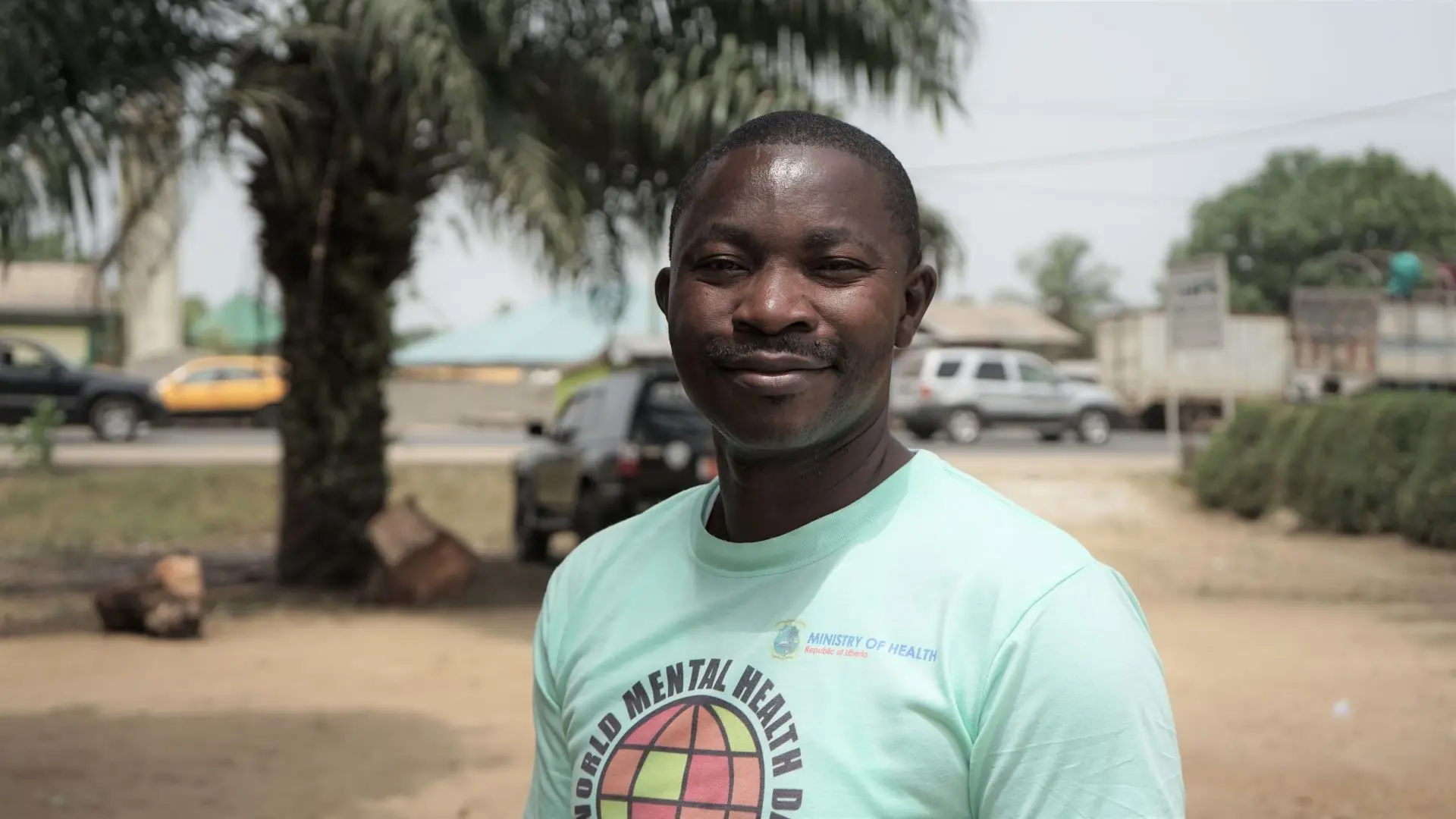
SUPPORT. Saidu Swaray is the director of the Liberia Association of Psychosocial Services (LAPS), which prevents violence and provides psychosocial support to trauma victims in Liberia.

Substances and stigma
One of the communities where LAPS works is the informal settlement St. Paul’s Bridge on the outskirts of Monrovia. Here, many citizens live with trauma, violence is widespread, and drug abuse among youth is high.
45-year-old Shiaka Sannoh and 44-year-old Watta Dukuly from LAPS work here. Their primary task is to provide psychosocial support to the traumatised in the area. This, however, is sometimes easier said than done, Shiaka Sannoh explains.
»If we want to reach our goals, we need to involve the community. When we started in St. Paul’s Bridge, the community members willingly accepted to partner with us because they realized they needed help. We then employed three persons from the district and trained them to anchor our efforts locally. We set up a meeting with the local leaders, with whom we now meet regularly for exchange of information. That makes it easier to reach out with our services«, he says.
A large part of LAPS’s efforts is about spreading knowledge about trauma and opposing the stigmatisation of mental illness, says Watta Dukuly, who is a St. Paul’s Bridge local.
»We see many teenage pregnancies, and domestic violence is widespread. Children often can’t stay at home because of the violence, so they take to the streets«, she says.
Violence
According to Shiaka Sannoh, violence has been ‘normalised’ in several ways – first during the civil war and then in homes where poverty, violence and untreated trauma often go hand in hand.
»We have extremely poor living conditions. Many residents make a living by selling water, soup, bread, or fish. Some are poor on the verge of starvation. Poverty forces women into prostitution. The community is flood prone and largely inhabitable. However, more people are still moving and relocating in the community because it’s cheap, but the former agricultural plots are now covered by informal housing«.
Watta Dukuly and Shiaka Sannoh acknowledge the challenge of offering treatment to someone who does not know where to find money for their next meal.
»We work with the resources they have. We offer treatment in a ten-week course. First, we assess their trauma history, related symptoms and their current condition to determine whether they will benefit from our help. If so, we formulate collaborative treatment plan and start the individual or group therapy«, says Watta Dukuly. She adds that the clients need to feel a motivation for the treatment to make a difference.
Watta Dukuly tells the story of a woman who had been abandoned by her husband and lived alone with her children. She felt ashamed because of the divorce, and she considered taking her own life because she could not provide for the children. She became isolated and depressed, and that is when Watta Dukuly met her.
»She went through the individual and group therapy interventions. Afterwards, we went out together and talked to her neighbours and explained to them that the divorce was not her fault and that she is their sister. The neighbours understood, and we helped her start a business. It is a special story for me because I made a difference«, says Watta Dukuly.
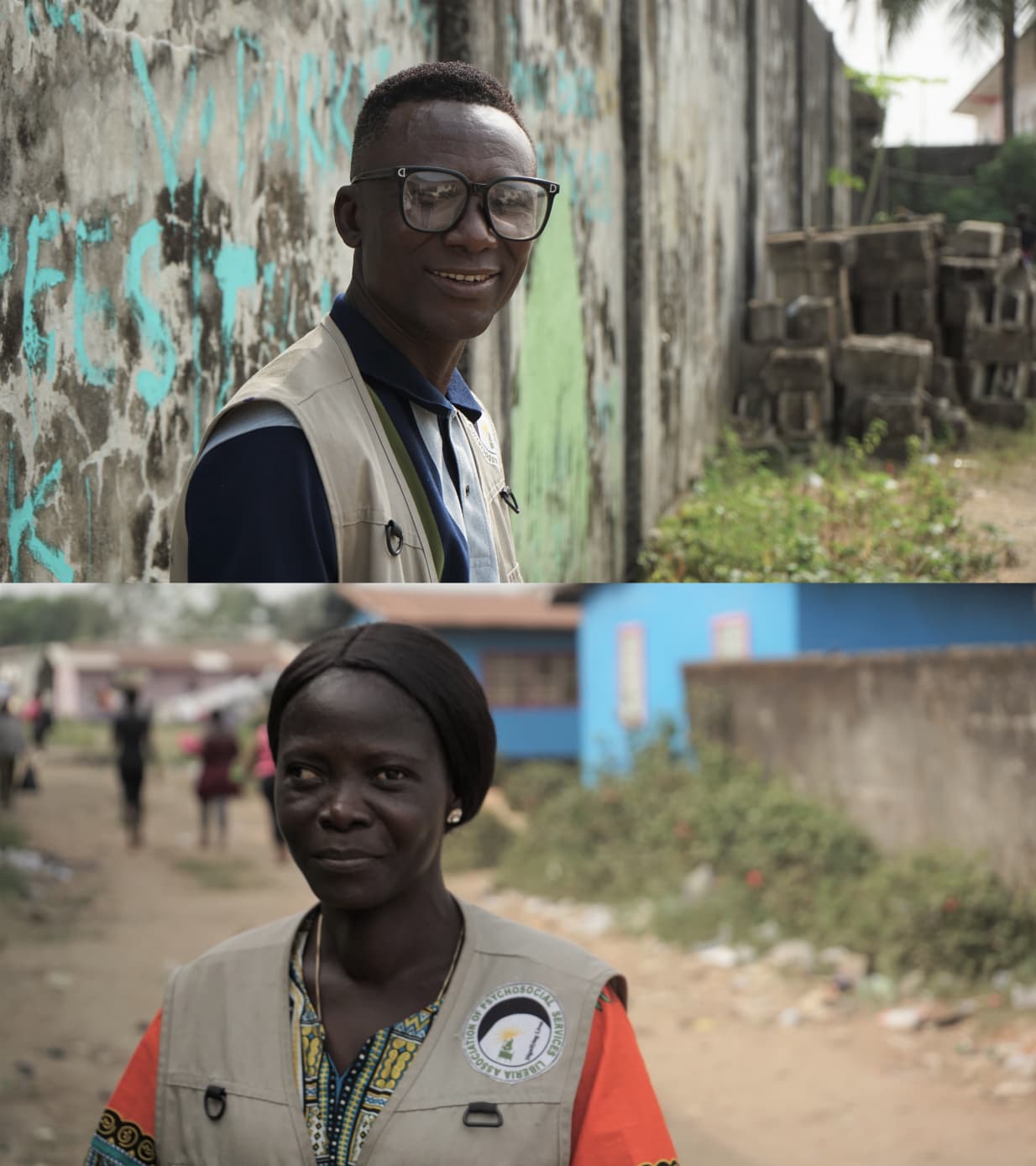
TRAUMA. Shiaka Sannoh (Top) and Watta Dukuly provide psychosocial support to those affected by trauma in the St. Paul’s Bridge.

Ebola took our parents
In another part of Monrovia, the Samuel K. Doe Community, LAPS managed to help two young women when the Ebola virus hit the country in 2014, and almost 5000 people died. The virus retraumatised many Liberians who experienced a revival of the chaos and death they had experienced during the civil wars.
Lydia, a 23-year-old hairdresser, lost both her parents to the deadly virus:
»From that day I was alone. I was thrown out of our house. The landlord thought I had contracted Ebola. I was forced onto the street. I only survived by being with men«.
But one day Lydia met a LAPS community worker who asked if she was okay.
»She gave me a bite to eat, invited me into her office and offered therapy. I accepted the offer. Particularly the play therapy helped me a lot. I have passed the techniques LAPS taught me on to my friends«, says Lydia, whose encounter with LAPS opened new opportunities.
»LAPS showed me that I could become a hairdresser and make a living. I got off the streets. Today I find it easier to talk about my past. My dream is to become a nurse. My message to other girls in a bad situation would be that they could also have a better life«.
Twenty-year-old Grace, who now works as a tailor, also ended up on the streets when her mother died of Ebola and her father developed an alcohol addiction. Grace had started getting involved with criminals when she first met someone from LAPS.
»I was sceptical at first, but I ended up telling my story. LAPS helped and supported me. I always wanted to be a tailor. They gave me the opportunity to take the education and earn my own money«, she says.
Shiaka Sannoh and Watta Dukuly agree that their country is still psychologically affected by Ebola, Covid-19 and the civil wars, and many Liberians still need support. Therefore, it is also important to collaborate with other organisations, to enable as many as possible to get help.
One of those organisations is DIGNITY’s other Liberian partner the Community Healthcare Initiative.
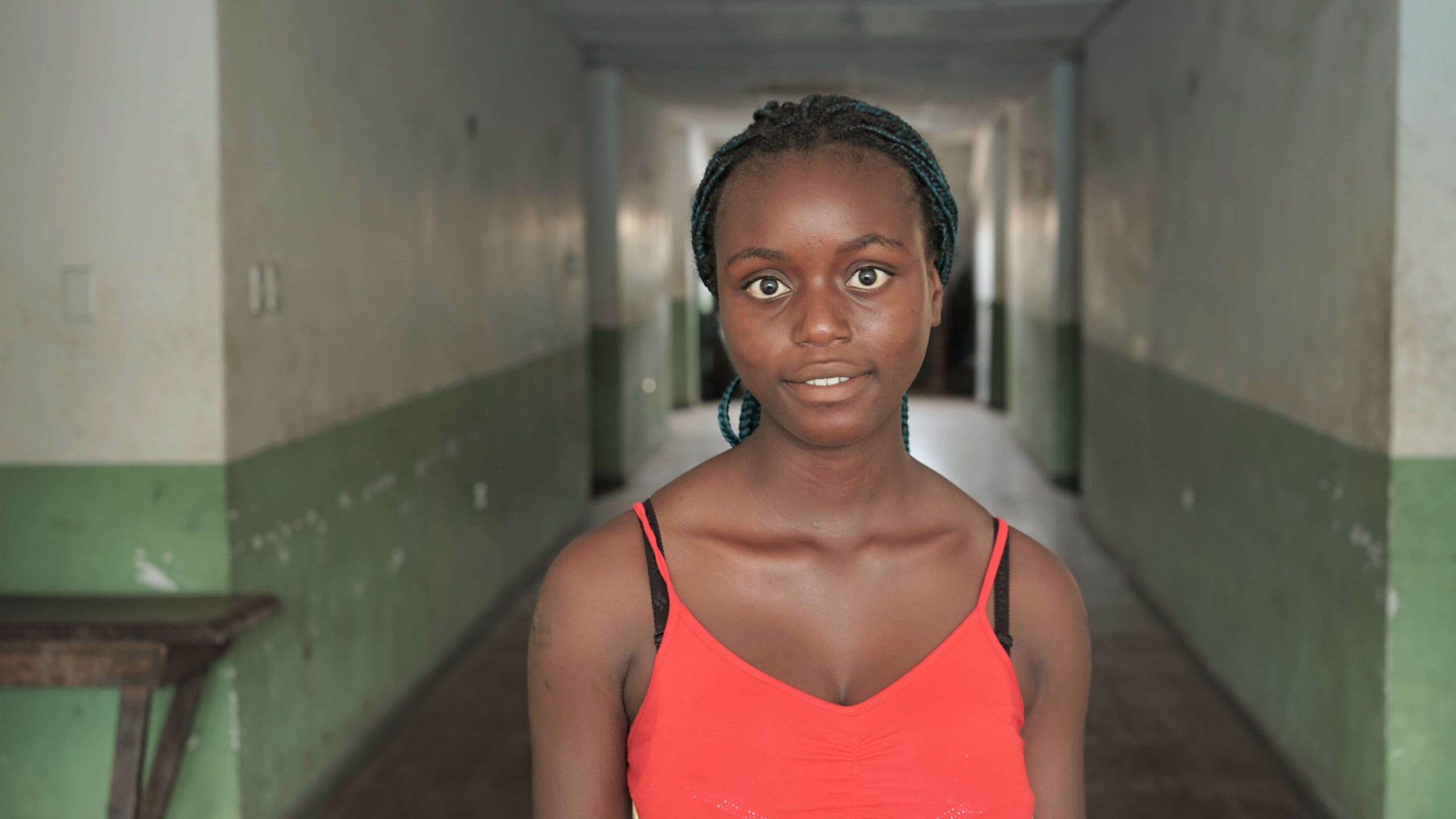
DREAMS. 23-year-old Lydia dreams of becoming a nurse.

Violence against women must stop
Even before entering the community hall in New Kru Town just outside Monrovia, you can hear 38-year-old Naomi Solanke’s voice echoing in the room.
Naomi Solanke is the director and founder of the Community Healthcare Initiative (CHI).
The organisation CHI is closely linked with Naomi Solanke’s own story. She became pregnant at a young age and experienced stigmatisation by her surroundings.
»I was told I had no future«, she says.
When she graduated as a nurse several years later, she converted her car into a mobile clinic and drove into some of the country’s poorest neighbourhoods to offer young girls help and knowledge about health and contraception. It all began as this mobile clinic. Today it has developed into a health clinic with several nurses and a doctor. The CHI is a nationally well-known NGO working to strengthen and protect the rights of women, children and sexual minorities.
In the community centre, Naomi Solanke is surrounded by local volunteers, leaders from the police and the head of the local youth organisation. Men and women, young and old, gather around her as she asks them:
»What are the problems in our community?«
As no one answers, she repeats the question more loudly, and this time hands are raised immediately.
Husbands beating their wives, child labour, drug abuse, violence, crime, and rape!
Everyone must be involved
If you really want to create change, you need to work at all levels of society, most importantly the buttom top approach, says Naomi Solanke, who describes herself as an activist and feminist.
»We need to involve all actors from the community and offer information and knowledge to the perpetrator as well as the survivors. We must all sit down at the same table and find solutions from a human rights based approach.«.
Naomi Solanke explains that her organisation and others work in areas without electricity and hospitals or other access to health care, and where violence against women and children is widespread.
Violence against girls and women – including sexual violence – was widespread during and after the civil wars. Previous studies have shown that up to 70 percent of Liberia’s women have experienced gender-based violence at some point in their lives.
»The root of the problem is inequality between men and women. Traditions, religious and society norns make it difficult for women and girls to get an education or a job. Girls and young women often marry and get pregnant very young. There is widespread poverty, and a large proportion of women are unemployed and left at the mercy of their partners, who are abusers and violent to them and their children.«, Naomi Solanke explains.
»Liberia had Africa’s first female president, but that does not mean that women in general have political power. During the civil wars we were subjected to violence. Now we have been placed on the side-lines, and this is reflected in the whole society. We women have never been handed our rights. They have only come after protests or demand. Women have been excluded and marginalised for many years. It is time to change that and make it a priority to make women part of the conversation«, says Naomi Solanke.
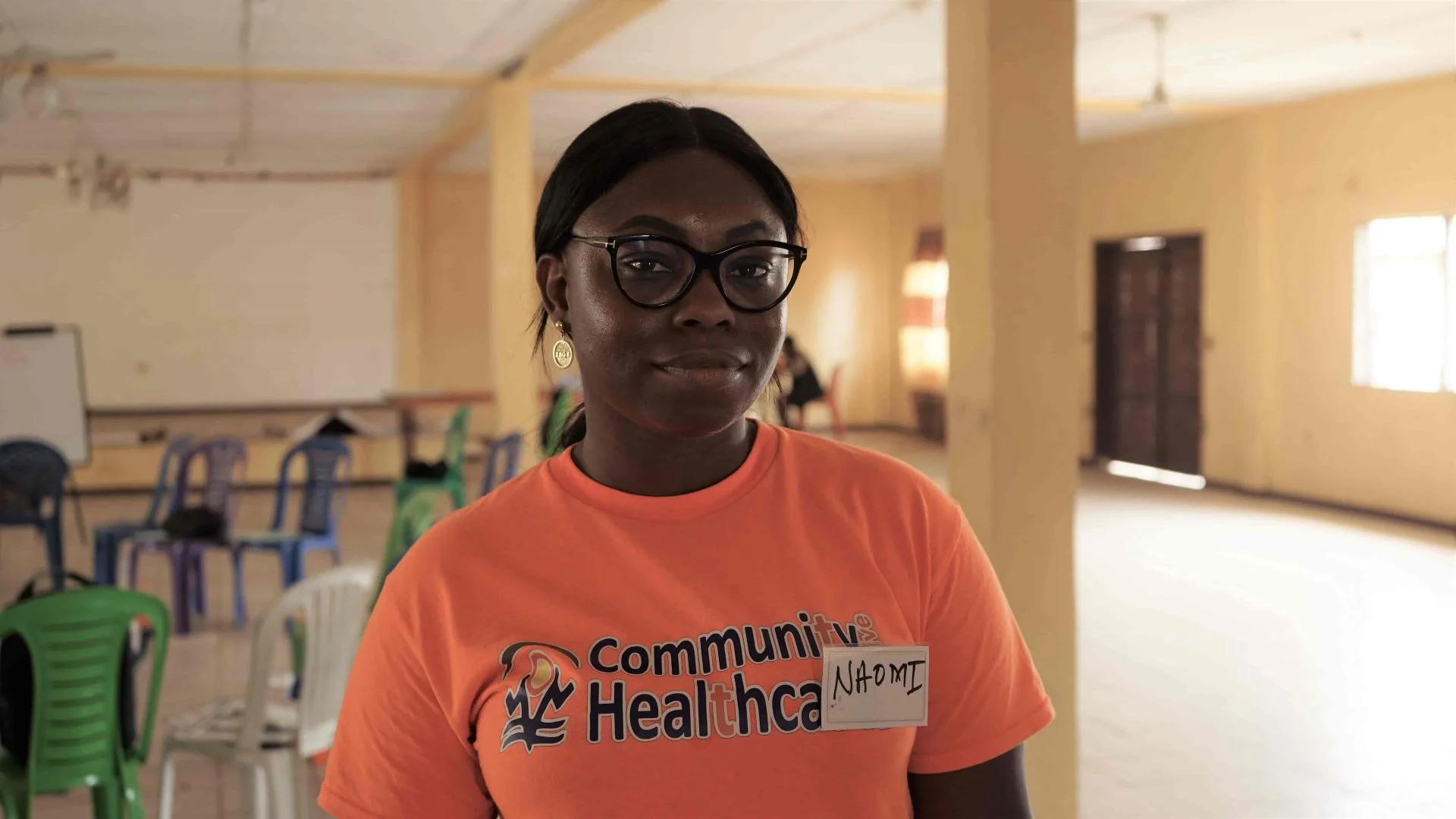
RIGHTS. 38-year-old Naomi Solanke is the director of the Community Healthcare Initiative (CHI), which works to protect the rights of women, children and sexual minorities.

Election year and impunity
Twenty years after the end of the civil wars, trust in the political system is very low, according to both LAPS director Seidu Swaray and CHI director Naomi Solanke. They both see corruption as a major problem.
69-year-old John H.T. Stewart agrees.
He is a journalist, an activist and a board member of LAPS – and also a survivor of torture. After the civil wars, John H.T. Stewart became a member of the Truth and Reconciliation Commission (TRC), which examined the war crimes and human rights violations committed during the wars and through interviews and on-site visits prepared a report reviewing the worst human rights violations during the wars and named some of the most central perpetrators.
»The criminals from the civil wars still walk around freely. Some of them are in powerful political positions. How do you think that affects the population? The country can’t heal without prosecution of the guilty persons«, says John H.T. Stewart.
The legacy should not be passed on
According to Seidu Swaray, it is not only important to prosecute those responsible for the civil wars, but also to rebuild the country’s social systems. He points to the need for a well-functioning health care system, a legal system, and an increased focus on mental health and psychosocial support.
»We should consider several forms of justice – also compensation for the victims of the war. If we can’t hold the perpetrators accountable, I fear that hatred and violence will be passed on to the next generation. If the perpetrators are not held accountable, I am also afraid that it could ignite new violence«.
Seidu Swaray, where do you find hope and optimism 20 years after the war?
»I am the director of an organisation full of passion. The changes we have worked for in society and for the individuals mean a lot to me. When I’m in bed at night, thinking about the challenges of the day, I never lose hope. Even though the legacies of the civil wars are still among us, I am encouraged by the small changes that move us forward«, he says and emphasises his hope for future generations.
»I am working for a better future for my son and all other children in this country. I hope we can create a society where we can help many more traumatised people. We must create a society where children grow up with good mental health, a strong school system and a country where everyone can have a good life. We must work towards a Liberia where the legacy of war is not passed on to the next generation«.
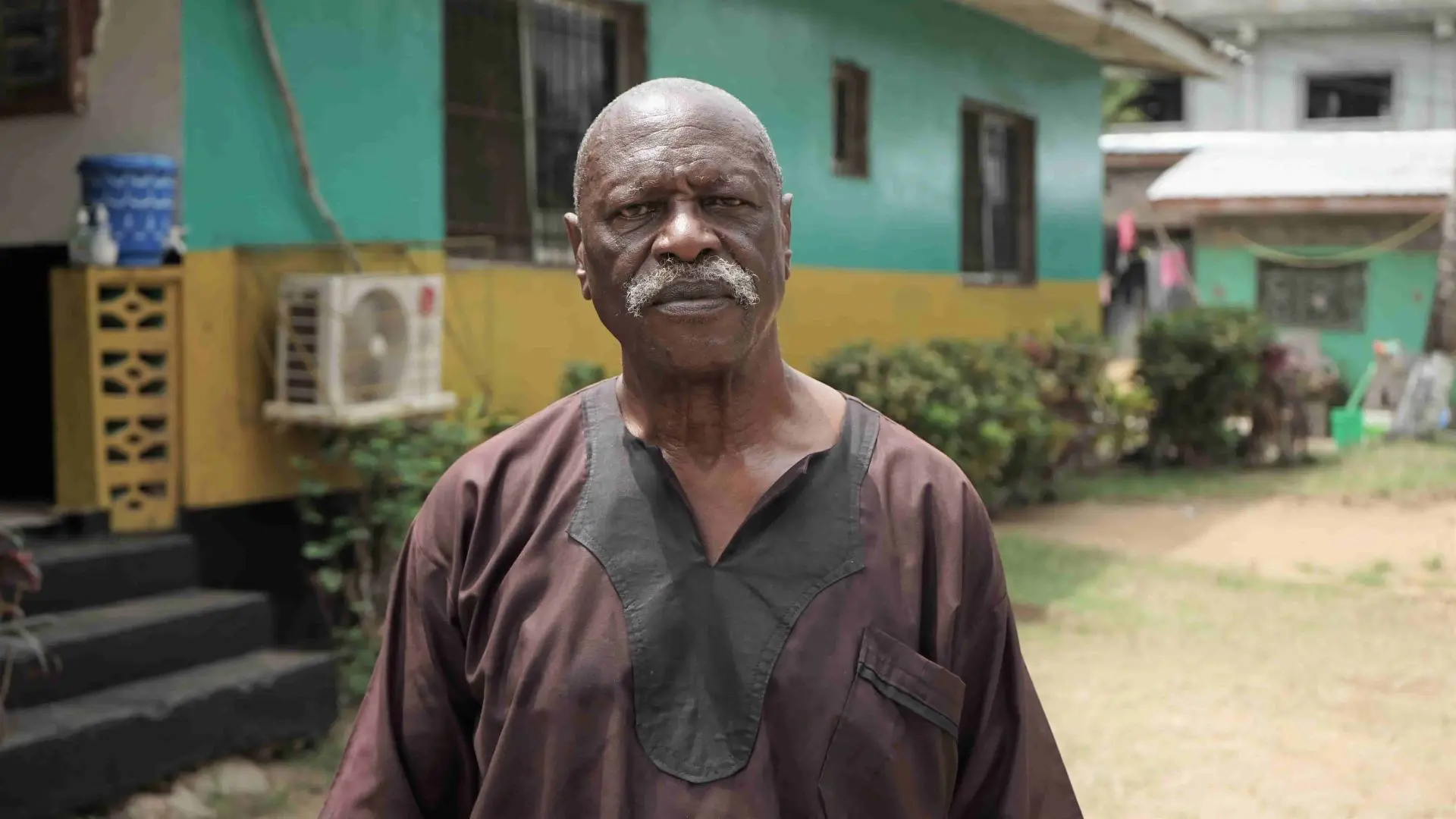
ACCOUNTABILITY. 69-year-old John H.T. Stewart is a journalist, activist and torture survivor.
How DIGNITY supports our partners in Liberia
DIGNITY has two partners in Liberia. One is LAPS – The Liberia Association of Psychosocial Services and the other is the Community Healthcare Initiative, CHI.
Since 2007, DIGNITY has supported LAPS through training in psychosocial interventions, project management, advocacy and fundraising. Together with LAPS, we have worked a lot to both systematise and ensure the quality of their efforts and supported their development as a sustainable organisation. At the same time, LAPS works has also inspired DIGNITY in the development of sustainable and survivor-centred approaches to our work.
In 2022, DIGNITY signed a partnership agreement with the CHI, which has a strong profile in community-based prevention of gender-based violence, which is major problem in Liberia.
DIGNITY’S work in Liberia is supported by Ministry of Foreign Affairs of Denmark.
Liberia, Africa
Sign up for DIGNITY’s newsletter here
